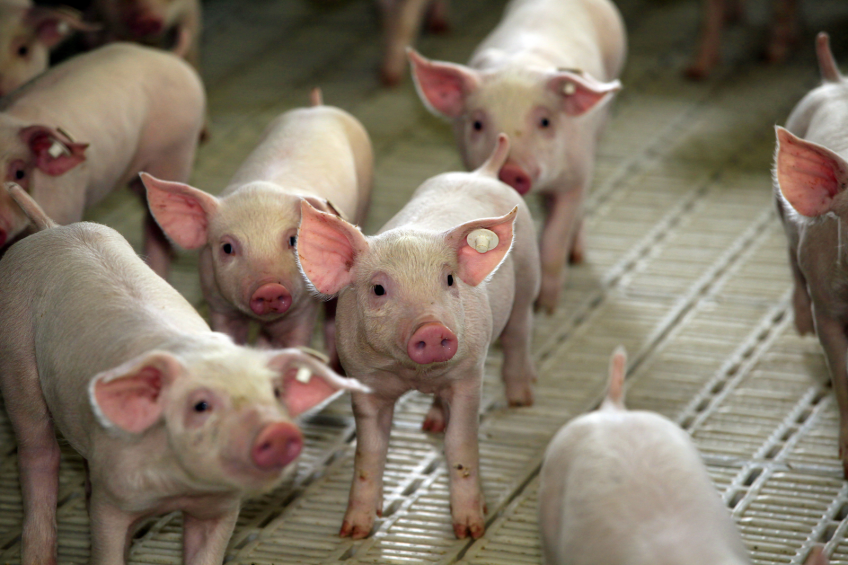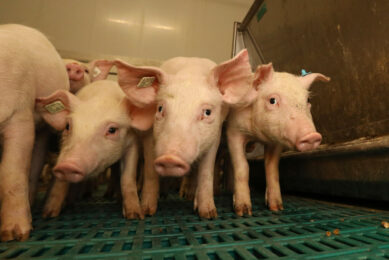Potential of dietary organic acids fed to swine

Organic acids and their salts have proven potential as growth promoters in weaned piglets, finishing pigs and pregnant sows, according to a recent study.
Public concern over the consumption of pork with antibiotic residues of the animals fed with antibiotic growth promoters (AGP) has paved the way to use other additives like herbs and their products, probiotics, prebiotics etc. Numerous feed additives are in vogue for achieving this target and one such classic example is the usage of organic acids and their salts.
Overcoming reduced feed intake with organic acids
Early weaned piglets are (3-4 weeks age) exposed to stress with a reduced feed intake, little or no weight gain. This post weaning lag period is due to a limited digestive and absorptive capacity due to insufficient production of hydrochloric acid, pancreatic enzymes and sudden changes in feed consistency and intake.
Lowering dietary pH by weak organic acids was found to overcome these problems. The main activity of organic acids is associated with a reduction in gastric pH converting the inactive pepsinogen to active pepsin for effective protein hydrolysis. Organic acids are both bacteriostatic and bactericidal.
Reduced gastric pH
Lactic acid has been reported to reduce gastric pH and delay the multiplication of an enterotoxigenic E. coli. These acids are the intermediary products in Kreb’s cycle and thus act as an energy source preventing the tissue breakdown resulting from gluconeogenesis and lipolysis. Excretion of supplemental minerals and nitrogen are minimised with organic acids as these form complexes with minerals and aids for their bio-availability.
Short chain fatty acids like acetic, propionic and n-butyric acid produced by microbial fermentation of dietary fibre in the large intestines may increase the proliferation of epithelial cells and have stimulatory effects on both endocrine and exocrine pancreatic secretions in pigs.
Increased protein utilisation
Organic acids also enhances apparent total tract digestibility and improves growth performance. It is concluded that organic acids and their salts increase the protein utilisation especially in weaner pigs and improves production indices.
The entire paper, ‘A review of the effects of dietary organic acids fed to swine‘, was published in the October 2015 issue of the Journal of Animal Science and Biotechnology. Mocherla Suiryanrayna and J Ramana, of the Sri Venkateswara Veterinary University, India were co-authors.











